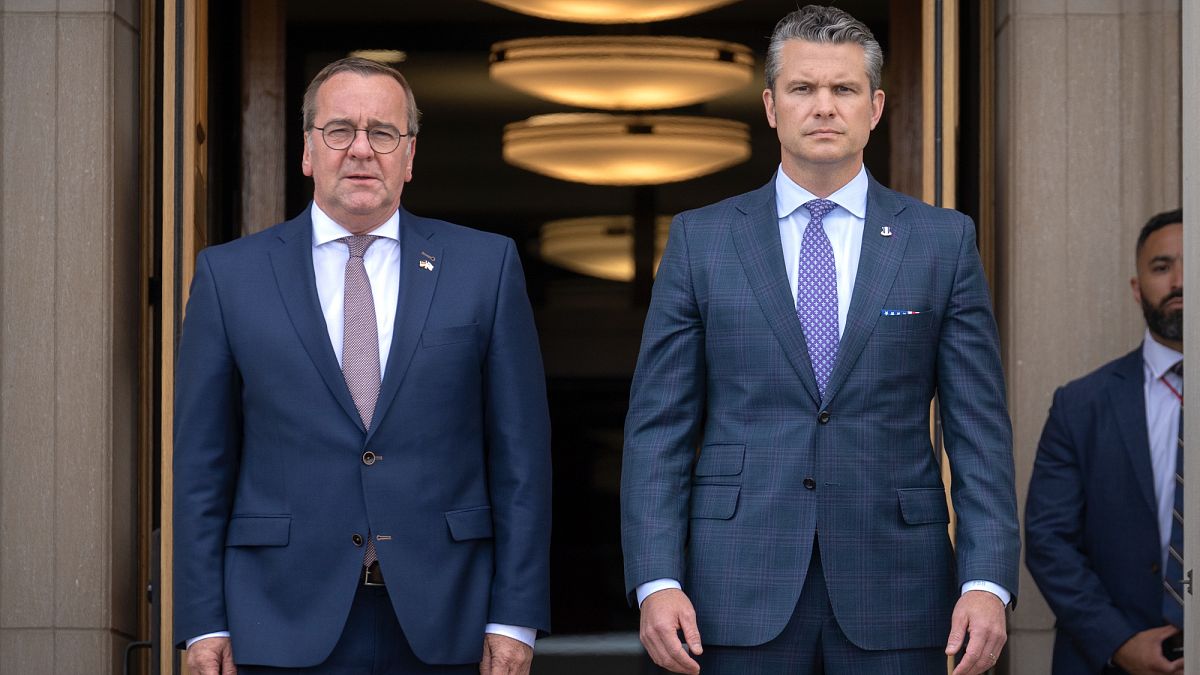

This week marked a series of significant diplomatic exchanges and strategic discussions across the globe, reflecting both regional tensions and collaborative efforts towards peace and progress. From military negotiations to political shifts, these events underline the complex tapestry of international relations.
In a pivotal meeting at the Pentagon, top officials from the United States and Germany convened to deliberate on the potential transfer of the Patriot missile system to Ukraine. This gathering followed a recent declaration by US President Donald Trump, highlighting NATO’s commitment to bolstering Ukrainian defenses through substantial purchases of American arms. This initiative is seen as a reinforcement of NATO’s collective defense capabilities amid the ongoing geopolitical challenges in Eastern Europe.
Complementing these discussions, the US envoy to Ukraine held a productive meeting with Ukrainian President Volodymyr Zelenskyy. This engagement, occurring just before President Trump’s announcement, emphasized the United States’ continued support. The intention to provide Patriot missile systems represents a strategic move after months of ambivalence surrounding America’s aid to Kyiv. The dialogue aims to strengthen Ukraine’s defense infrastructure, reassuring allies of Washington’s dedication to regional stability.
Amidst these military discussions, Ukraine experienced a noteworthy political development. President Zelenskyy appointed Deputy Prime Minister Yulia Svyrydenko as the new Prime Minister. Svyrydenko, an accomplished economist, has served in various governmental roles, including Minister of Economic Development and Trade. Her appointment signals a commitment to steering Ukraine’s economic growth and pursuing a path of resilience and recovery in these challenging times.
In another realm of international relations, President Trump offered insights into NATO’s evolving role in global security. The US leader described NATO as increasingly pivotal, countering previous notions of obsolescence. This affirmation of NATO’s relevance came with candid remarks about his relationship with Russian President Vladimir Putin, where Trump expressed disappointment yet indicated unfinished diplomacy with Russia.
Looking beyond Europe, France has shown openness to initiate reparative discussions with Niger over colonial grievances that date back more than a century. While the French government has not acknowledged direct responsibility, it expressed readiness to engage in bilateral dialogues and collaborate on cultural restitution. This gesture of reconciliation reflects a broader dialogue on historical accountability and the ongoing process of addressing colonial legacies.
Meanwhile, in the Middle East, human rights concerns have gained attention as European entities are encouraged to prioritize Iran’s political prisoners in forthcoming diplomatic talks. Human rights activists emphasize the need to spotlight Tehran’s internal policies as part of any negotiation involving future relations with Iran. This advocacy underscores the persistent dialogue about human rights and geopolitical diplomacy.
The diplomatic movements and policy decisions observed this week amplify the intricate dynamics of global politics. These narratives illustrate an enduring pursuit of strategic partnerships, humanitarian consideration, and political evolution amidst a backdrop of historical and contemporary challenges. As the world continues to navigate through these multifaceted interactions, the emphasis remains on achieving peace and unity through thoughtful discourse and mutual cooperation.
Source: {link}
